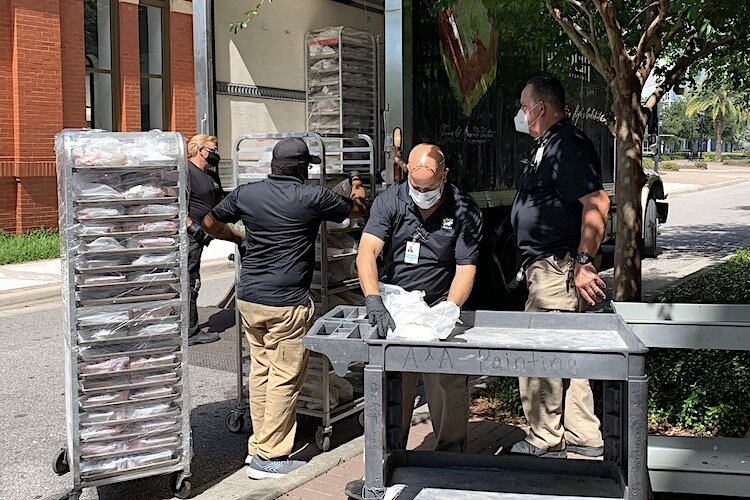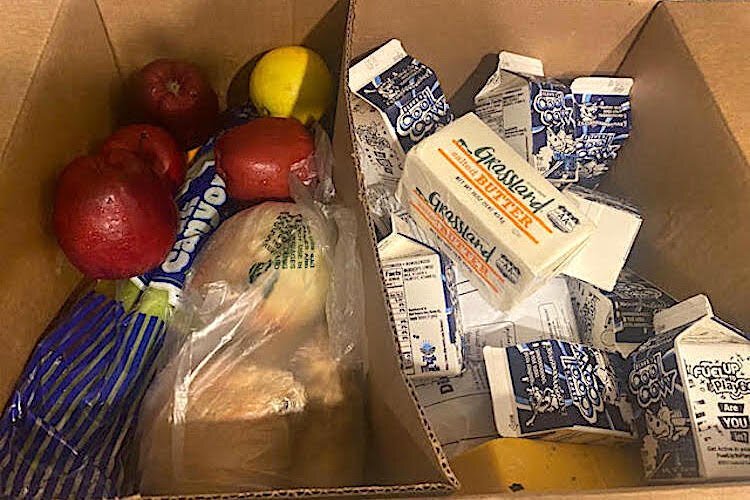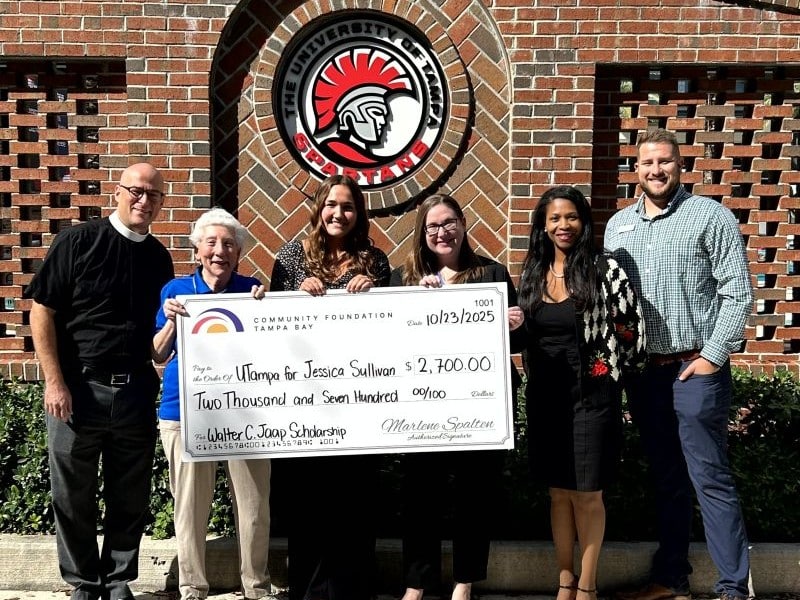COVID-19 recovery: A look at pandemic life in Tampa’s Tempo District
COVID's disproportionate economic hardship on lower-income Americans is well documented as the pandemic rages on across the nation. In Tampa, community organizations and neighbors are stepping up to help residents of ENCORE!, a newly constructed affordable housing, retail, and green space on the north edge of downtown.
The Tempo District, home to 1,500 residents and growing, includes the award-winning sustainable ENCORE! development situated on the northern edge of downtown Tampa. The public-private venture between the Tampa Housing Authority (THA) and Banc of America Development Corp. spans 12 blocks with four music-themed affordable apartment complexes, retail, green spaces, a skate park, a healthcare facility, and other amenities. With a mix of market-rate and subsidized housing for families and the elderly, the Tampa Housing Authority manages the property and supports residents in various ways whether or not they are part of the public housing program.
Since the outbreak of COVID-19 last spring, the district has implemented stringent cleaning protocols in all of its buildings — from hallways to pool cues — including a mandatory mask policy and other adjustments in line with CDC guidelines you might expect: No more all-welcome movie nights in the buildings, for instance.
Six hundred residents took advantage of free-COVID-19 testing THA offered in September in collaboration with the Hillsborough County Department of Health. Though results are protected by health privacy regulations, Leroy Moore, Chief Operating Officer of THA, notes the Tempo District “does not seem to be an area of high concentration.”
THA does have statistics, however, regarding its own workforce. THA made COVID-19 testing mandatory for all of its employees in June when it decided to re-open its offices, requiring a negative test. The positivity rate was just 1.5% across its workforce — at a time when the positivity rate was trending in the upper teens in Florida — and Moore notes that their planning and adherence to PPE and health cards, which record a daily record of any symptoms and temperature, rigorous cleaning procedures, and keeping the buildings closed to the public has helped keep THA employees’ levels low.
Though necessary, wi-fi can be cost-prohibitive
Like residents across Tampa Bay and the nation, thanks to the pandemic, many Tempo District residents are working from home, have lost their jobs, or are juggling e-learning students at home.
Key to the success of this dynamic is access to functional, high-speed Internet.
THA managers knew that many Tempo District residents simply could not afford wifi and that this would compound a worsening situation for residents. THA partnered with a local Internet provider PBX-Change, a local downtown Tampa business, to provide free connectivity to high-speed Internet for Tempo residents for the next year.
This has made a world of difference to some residents. Vanessa Marzol was struggling to make e-learning work for her 11th grader, Matthew Aleman. Without the Internet and unemployed in a pandemic, Vanessa says, “things got really tough.”
She says access to wifi changed things for the better. Her younger son could access classes and schoolwork, her older son could complete the requisites he needs for Job Corps and she is able to search for a job and connect with her family.
“Thanks to the opportunities of where we live, thanks to PBX, we can stay close to our family and friends and it gives our children the opportunity to study,” she says.
Nourishing the community
Food is Tempo resident Kareen Linton’s business. Also known as Chef Coco, Linton is a culinary educator whose business, A Dash of Coco, was already online with students from all over the globe. With the pandemic, she says, “the world suddenly caught up to what we were doing online.” You can imagine her delight when she found herself — along with everyone else in the Tempo and Trio buildings — the recipient of a box of fresh produce, chicken, and dairy.
Since the pandemic started, with the assistance of Feeding Tampa Bay and Southern Baptist Convention, ENCORE! Tampa residents received a total of 850 food box deliveries containing fresh chicken, milk, cheese, vegetables, and fruit — enough to feed a family of four. In addition, approximately 1,340 prepared meals were delivered to residents in April and in September, and Tempo and Trio residents received about $10,000 worth of Publix Gift Cards. (These efforts are ongoing across all of THA properties — over 12,200 boxes or 61,000 meals have been delivered to residents since April.)
Linton says residents are checking on each other, sharing when they can, and the building management is doing a scrupulous job of cleaning. For her, this community effort and hearing children’s laughter again from the re-opened daycare center on-site has shown her: “We all have a part to play in this, we are all in this together and we’ll get through it together.”
Tempo property manager Angel Moore says she is looking toward Thanksgiving and trying to figure out how she can get more turkeys to families. “Normally I’d raffle off a turkey or turkey dinner,” notes Moore. Now, she says she’s wondering “How can I get 203 turkeys?”
Moore has had to get creative on engaging residents during the pandemic, and especially kids. Many are not in school and “keeping them occupied and not wreaking havoc” is important. She re-opened the pool and the gym using an app called Amenity Boss which allows social distance as residents book limited timeslots for the amenities with a QR code. She says she regularly invites resident kids to help pass out flyers and organizes kid- and pandemic-friendly activities whenever possible, including Halloween treats and a backpack giveaway.
Public housing offers some protections
To a certain extent, residents already enrolled in the public housing program enjoy some protection against the economic effects of the pandemic.
“When a family loses income or has a drop in income, we recompute their rent until their income starts going back up. They have a safety belt in cases like a pandemic which has allowed all of our family to stay housed,” says Moore, the COO of THA. “The moratorium [on evictions] was protection for the private sector.”
Moore says the negative impact is reflected on the waitlist, which is enormous, and which has stagnated as funding is directed toward greater subsidies of current residents. He cautions that the next economic stimulus package needs to increase the supply of subsidized affordable housing as the demand is more stressed than ever as people lose their jobs and increasingly often their housing in the private market.
“Affordable housing should be a place where you spend time building stability and strengthening the family to thrive in more self-sufficient ways. This pandemic is stagnating that potential.”






















